This article is part of our 2020 Rewind. Follow along as we explore the best and most interesting movies, shows, performances, and more released in this very strange year. In this entry, we explore the best TV scenes of 2020.
Crafting a good TV scene is an art form, one that requires teamwork between actors, directors, cinematographers, editors, musicians, and countless other hard-working people. The television moments we love most might go by in heartbeat, but in reality, they’re made through months of work — something that’s ever-more-apparent this year as COVID-19 continues to halt or slow production on many major series.
The best TV scenes can snag you in those brief moments, hitting you with an unexpected feeling or association and bringing about a laugh or some tears before you even realize the moment’s struck a chord. This year’s best scenes are filled with that kind of raw, unexpected emotion, just like 2020 has been. Read on to learn more about the TV moments that moved us most this year:
20. The Good Fight: “The Gang Discovers Who Killed Jeffrey Epstein”
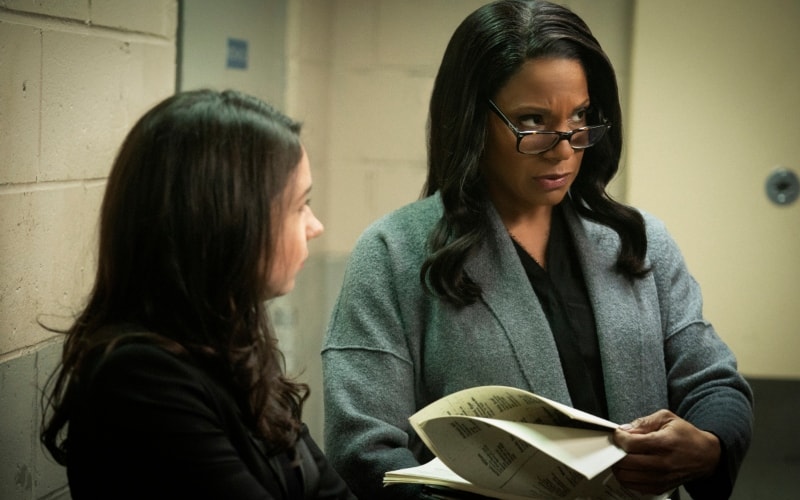
No, you didn’t misread that episode title. The fourth season finale of The Good Fight actually revolves around trying to figure out who killed Jeffrey Epstein and what happened to his body after his death. It gets weirder, too. After going down a rabbit hole of potentially meaningless clues and conspiracies, the investigative team at Reddick, Boseman, and Lockhart is led to a shrine on Epstein’s private island. There, they expect to find someone named “Bud,” whom they think is central to the Epstein mystery. They don’t see anything of note, but after they’ve turned to leave, the camera pans to — not kidding here — a display case containing Epstein’s cryogenically frozen penis, which is apparently nicknamed “Bud.” Yes, this is a Citizen Kane reference. No, I can’t decide if this whole thing is brilliant or terrible either. Regardless, the sheer weird factor makes it a 2020 TV moment that can’t be missed.
19. Little Fires Everywhere: “The Spider Web”
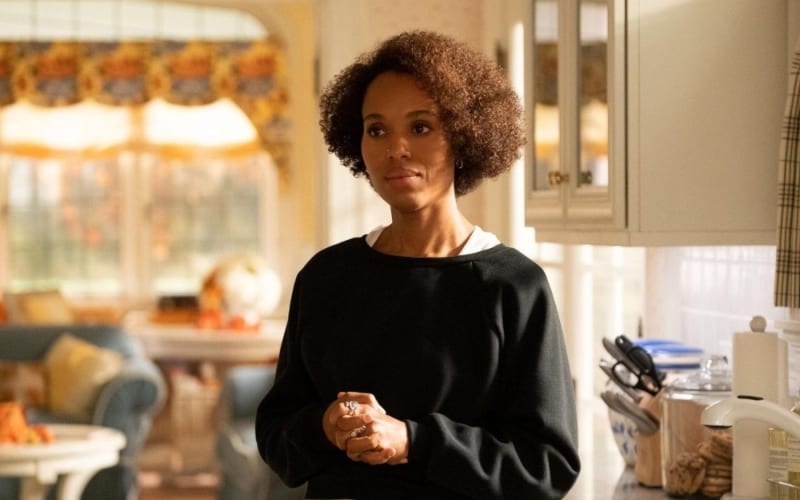
Part prime-time melodrama, part searing take on race relations, Little Fires Everywhere delivered plenty of moments worth applauding thanks to a cast led by powerhouses Reese Witherspoon and Kerry Washington. The drama comes to a boil halfway through the season when Witherspoon’s Elena confronts Washington’s Mia about what it means to be a mother. Elena talks down to Mia, who, as the former’s maid, passive-aggressively tidies the house throughout the scene. She accuses Mia of making poor choices, which results in the best lines of the series. “You didn’t make good choices,” Mia declares, “You had good choices. Options that being rich and white and entitled gave you.” Elena, a perfect portrait of white fragility, accuses Mia of making everything about race. Mia gets the last word. “White women always want to be friends with their maid,” she says, before leaving the job for good.
18. The Crown: “Fairytale”
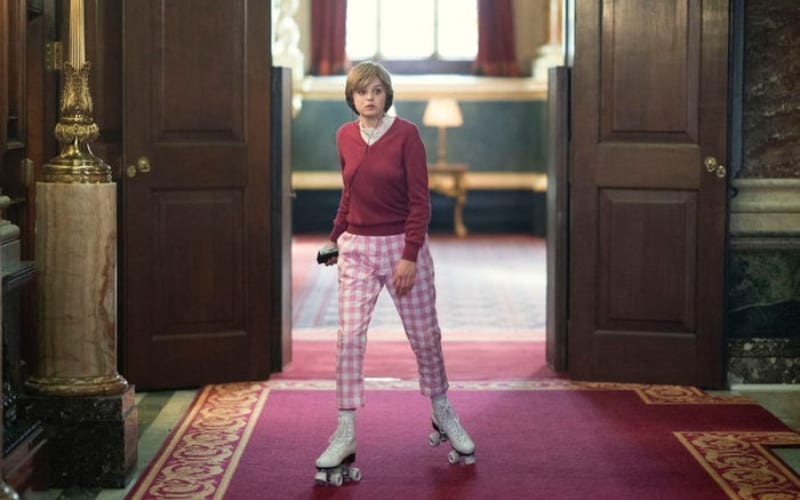
Every scene of The Crown featuring Emma Corrin as Princess Diana is captivating, but the empty palace scenes in “Fairytale” are particularly haunting. Stuck in the royal home during pre-wedding purgatory, Diana slowly but surely begins to recognize the bars of her gilded cage. In a series of short sequences, we see her begrudgingly wake up in the morning, take ballet lessons, sit barefoot and lonely in a chair, answer heaps of fan mail, and — most memorably — roller skate around the palace halls while listening to Duran Duran’s “Girls on Film.” Soon after, we see her fall into bulimia for the first time. This mostly wordless sequence communicates everything we need to know about Diana: her stifled youth, her oppressive isolation, and the joy of the peoples’ love that she’ll continue to cling to throughout her tumultuous marriage.
17. Never Have I Ever: “…Said I’m sorry”
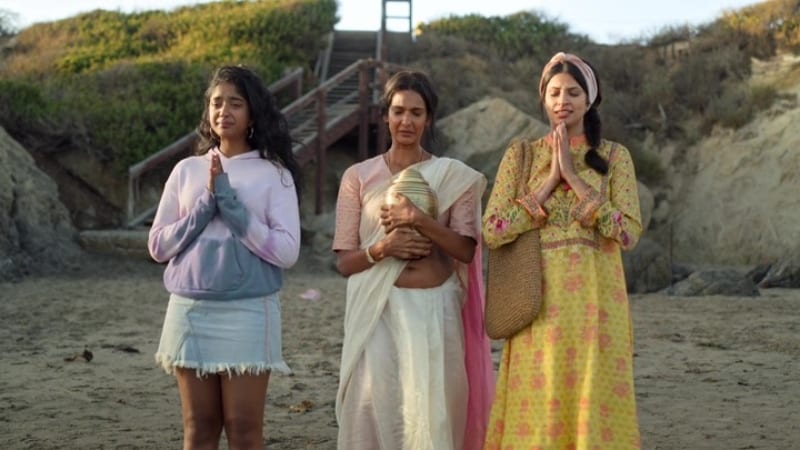
Mindy Kaling’s funny and refreshing teen series Never Have I Ever ended its first season on a heartfelt note. After a huge fight, Devi (Maitreyi Ramakrishnan) stays behind while her mother Nalini (Poorna Jagannathan) and cousin Kamala (Richa Moorjani) head to Malibu to spread her father’s ashes. When she changes her mind and rushes to the beach, she gets an unexpected assist from the series’ narrator, John McEnroe, who was her dad’s hero. It’s Ramakrishnan’s tearful pleading, a display of unguarded raw emotion after a season spent avoiding her grief, that really hits home, though. She meets her family on the beach and apologizes to her mother. After a season of serious antagonism from both sides, Nalini’s words are a complete comfort: “I love you, you’re my only child, you’re my whole family,” her mom assures her. She speaks a Sanskrit prayer, and they let Devi’s father go.
16. A Teacher: “Episode 5”
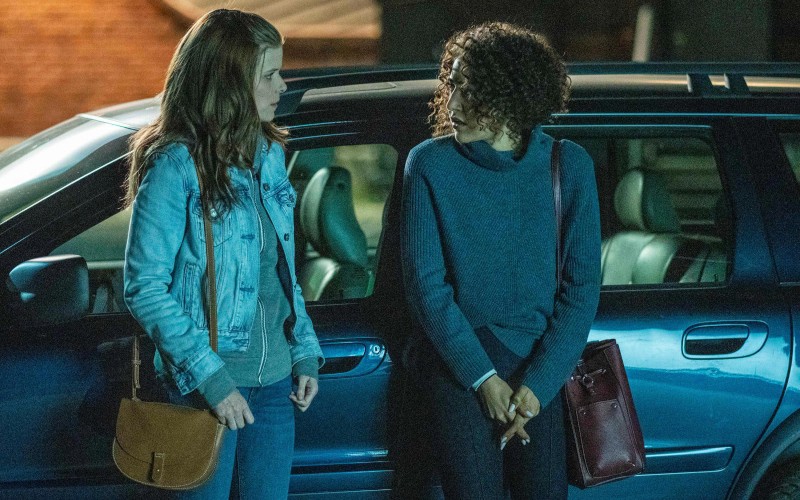
There’s the salacious show that audiences worried A Teacher might be, and there’s the much more thoughtful show that it actually is, and a pivotal scene roughly halfway through the series is the dividing line between the two. After returning from a romantic getaway with her student, Eric (Nick Robinson), married high school teacher Claire (Kate Mara) goes out for drinks with her coworker, Kathryn (Marielle Scott). In the parking lot outside the bar, Kathryn guesses that Claire’s having an affair. She nudges Claire for more details, and for a minute, in this context, it feels as if Claire’s hiding a juicy secret, not a disturbing crime. She obviously thinks so, too; in a truly startling moment, Claire confides in Kathryn, proudly announcing her relationship with a high schooler. The situation quickly unravels, as Kathryn’s disgust is clear and Claire’s attempt to backtrack is futile. The scene is anchored by both actresses’ ability to convey a massive tonal shift through understated on-screen choices. It’s a tectonic shift that tilts the series into its much more interesting and complex second half, which takes off the rose-colored glasses to examine the fallout of the predatory central relationship.

0 comments:
Post a Comment